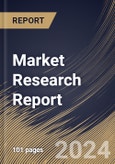There is an increasing consumer preference for natural and sustainable products. This trend extends to the market, with an increased interest in bio-based glycolic acid derived from renewable sources. Manufacturers are exploring sustainable production methods to align with environmental consciousness and consumer demand for eco-friendly solutions. The cosmetics and skincare industry continues to experience innovations in formulations containing glycolic acid. Advanced delivery systems and encapsulation techniques are being explored to enhance the stability and efficacy of glycolic acid in various skincare products. Manufacturers are focusing on creating user-friendly applications with minimal side effects.
The awareness of skincare ingredients and their benefits has increased among consumers. It is known for its exfoliating and anti-aging properties, is seeing rising adoption in skincare routines. Products containing glycolic acid are being positioned as effective solutions for addressing various skin concerns, contributing to its continued growth in the cosmetics industry. There is a trend toward personalized and customized skincare solutions. Companies are exploring ways to tailor glycolic acid formulations to meet individual skin needs. This can involve adjusting concentrations or combining glycolic acid with other ingredients to create targeted skincare products.
The convenience of online shopping is a significant factor driving the adoption of glycolic acid in Spain. E-commerce platforms integrate with social media channels, allowing users to discover glycolic acid products through influencers, beauty bloggers, and social media campaigns in Spain. E-commerce platforms prioritize secure and convenient payment options, instilling confidence in online transactions in Spain. According to the International Trade Administration, the number of e-commerce consumers in Spain reached 30 million in 2021. eCommerce penetration was estimated at 63%, and internet penetration at 83% in 2021. By 2025, there will be 37 million eCommerce users, a 25% increase.
The Germany market dominated the Europe Glycolic Acid Market by Country in 2022, and would continue to be a dominant market till 2030; thereby, achieving a market value of $28384.5 Thousands by 2030. The UK market is registering a CAGR of 5.4% during (2023 - 2030). Additionally, The France market would showcase a CAGR of 7.1% during (2023 - 2030).
Based on Grade, the market is segmented into Technical Grade and Cosmetic Grade. Based on Application, the market is segmented into Personal Care & Dermatology, Industrial, Household and Others. Based on countries, the market is segmented into Germany, UK, France, Russia, Spain, Italy, and Rest of Europe.
List of Key Companies Profiled
- The Chemours Company
- China Petrochemical Corporation (Sinopec Group)
- Merck KGaA
- Shandong Xinhua Pharmaceuticals Co., Ltd.
- Hefei TNJ Chemical Industry Co., Ltd.
- Siddharth Chlorochem Pvt. Ltd.
- Avid Organics Pvt. Ltd.
- Hebei Chengxin Co., Ltd.
- Sancai Industry Co., Ltd
- Phibro Animal Health Corporation
Market Report Segmentation
By Grade (Volume, Tonnes, USD Million, 2019-2030)- Technical Grade
- Cosmetic Grade
- Personal Care & Dermatology
- Industrial
- Household
- Others
- Germany
- UK
- France
- Russia
- Spain
- Italy
- Rest of Europe
Table of Contents
Companies Mentioned
- The Chemours Company
- China Petrochemical Corporation (Sinopec Group)
- Merck KGaA
- Shandong Xinhua Pharmaceuticals Co., Ltd.
- Hefei TNJ Chemical Industry Co., Ltd.
- Siddharth Chlorochem Pvt. Ltd.
- Avid Organics Pvt. Ltd.
- Hebei Chengxin Co., Ltd.
- Sancai Industry Co., Ltd
- Phibro Animal Health Corporation








